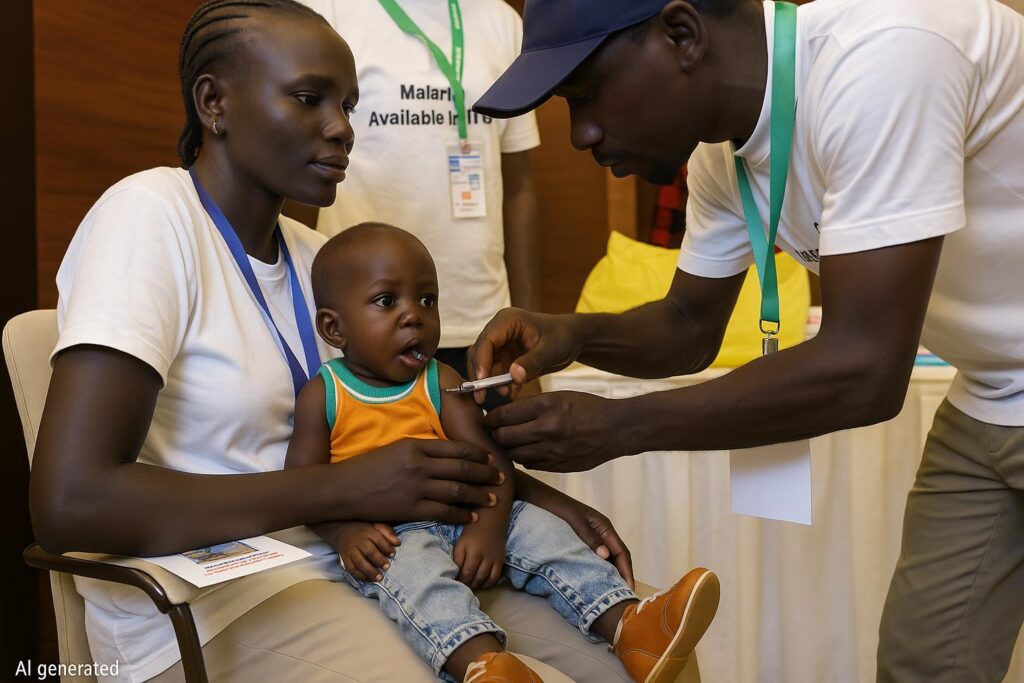A Renewed Push Against Malaria
The Ministry of Health and Population has unveiled the second phase of the R21/Matrix-M malaria vaccine campaign, covering all 86 health districts after last year’s limited pilot in northern departments.
Officials aim to reach 350,000 children aged five to 23 months before November rains, a period when vector density often doubles along the Congo and Kouilou rivers.
Financing the Fight
Brazzaville’s budget, supplemented by Gavi, UNICEF and the WHO, allocates USD 3.1 million for vaccine doses, cold-chain upgrades and community mobilisation this fiscal year.
Health Minister Dr. Gilbert Mokoki called the package “a prudent investment” that will reinforce existing insecticide-treated net distributions and seasonal chemoprevention, noting malaria still claims over 2,800 Congolese lives annually.
Community Response and Challenges
Early uptake in pilot zones reached 82 percent for the first dose but fell to 56 percent by the fourth, largely due to transport costs and competing farm duties, according to a joint evaluation by the National Malaria Control Programme.
This phase therefore pairs vaccination days with market gatherings, while local radio dramas in Lingala and Kituba address rumours that the shot causes fever or infertility.
Regional Significance
Congo’s scale-up adds momentum to Central Africa’s broader elimination agenda, following recent launches in Cameroon and Gabon; WHO Africa’s Dr. Modeste Mbala said the sub-region could avert one million cases annually if coverage stays above 80 percent.
Epidemiologists caution that climate variability and insecticide resistance remain threats, yet they view the R21 programme as a tangible sign of political commitment to universal health coverage.


